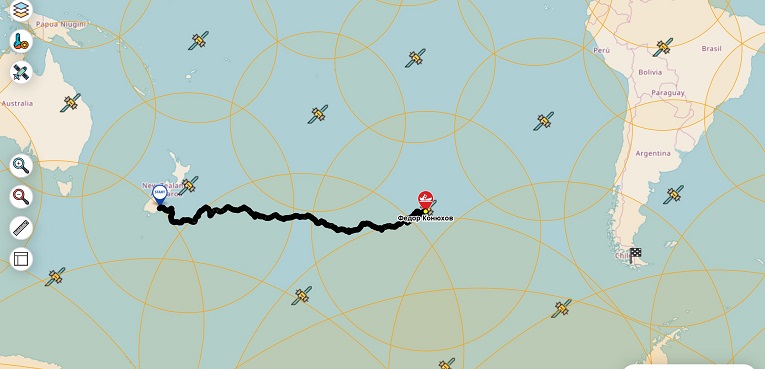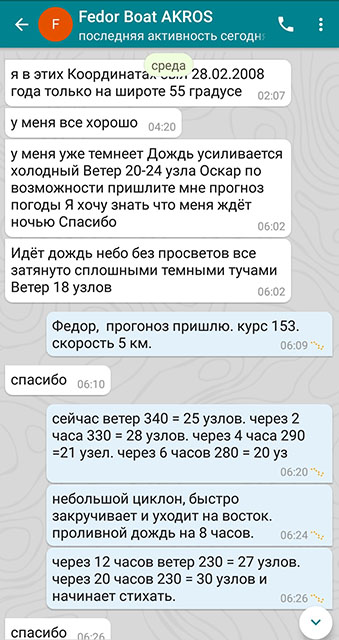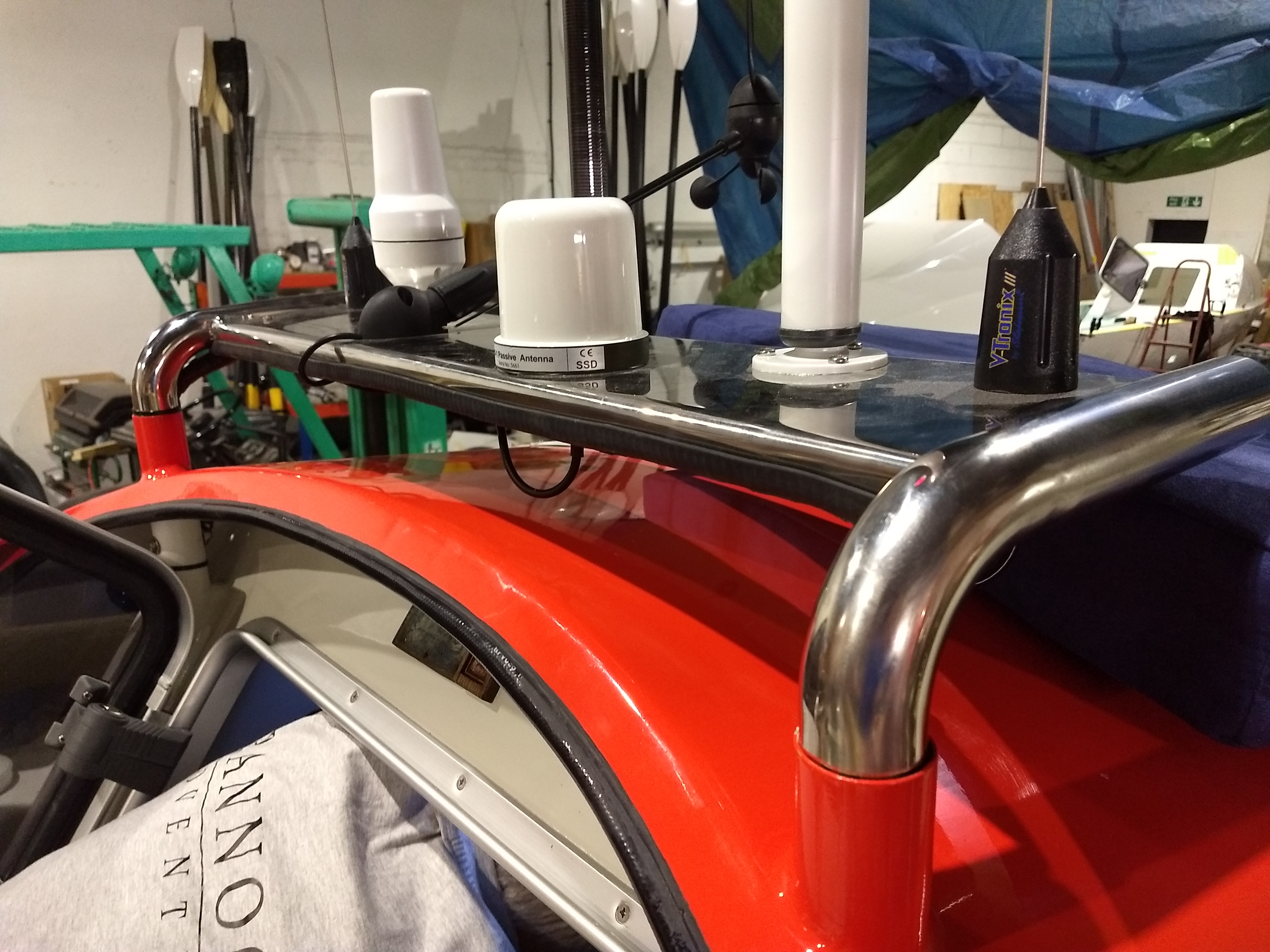Day 85
A message from Fedor Konyukhov.
“There is no significant news, except that today is the 85th day in the ocean or more than 2 thousand hours on board the “AKROS” rowing boat. Thank God, I am alive and well, the boat is also in order, although overgrown strongly: starting from the waterline and down below the hull is covered with clinging sea ducks (gooseneck barnacles), with the size and thickness of a finger. Especially on the left side, where there is more sun. The boat is moving slower owing to this overgrowth. I will try to cut them with a knife today where I can reach, at least in the cockpit area.
The wind has dropped to 5 knots, but this does not please me, I know from experience that after a lull there will definitely be a headwind.”
News from our partners: Satellite communication Iridium.
While Fedor Konyukhov crosses the oceans, Iridium tries to keep up with him. All satellites of the second generation “Next” have already been launched into orbit, and we all have noticed an improvement in voice communication quality. Voice communication quality is now the same as from a mobile phone call, despite the fact that Fedor is in the Southern Ocean.
During most of Fedor’s expeditions, there is not a large choice of telecom operators. Since almost all of Fyodor’s expeditions are around the world, he also requires a global connection, which should literally work everywhere. The map shows the location of the Iridium satellites over the South Pacific. The region where Fedor Konyukhov is currently located has 100% coverage.
During the 21 years of operation, Iridium kept improving the handset design, new trackers capabilities have appeared, and our “Iridium GO!” became a fundamentally new technology. The main advantage of “Iridium GO!” is that you can conveniently use your familiar smartphone while connecting it to a satellite network. This year Fedor is testing the “Bysky” satellite messenger. He writes messages from a regular smartphone and sends them via “Iridium GO!” devices. Imagine you are lying in a tent on a slope of the Everest mountain or on drifting ice of the Arctic Ocean and sending SMS messages from your regular smartphone, while your family and friends receive these SMS messages via their mobile or wi-fi networks. In the future, it will be possible to attach photos to messages via “Bysky”.
We really hoped that Fedor would be able to send photos, but at a data transfer rate of 2.4 kbit / s, you need to wait 20-30 minutes for each photo to go through, even longer on a constantly rocking boat. With the advent of the “Iridium Certus” service, we are expecting a breakthrough in expanding the range of subscriber devices, their functionality and services.
The company makes its debut with the services of “Iridium Certus”, where the new subscriber terminals will increase the speed of data transmission, which will bring the possibility of the video broadcast, and further improvement of the quality of voice communication. The new services were launched by the “Iridium Certus 350” service, which provides Internet and high-quality voice communication services for compact terminals designed specifically for the maritime, aviation and land networks.
The key word is compact terminals and antennas. On large yachts and ships, it is already possible to send photos and even videos via satellite channels without any problems, but it is impossible to install a powerful antenna on a rowing boat. The antenna currently installed on the “AKROS” rowboat is the size of a mug.
At the end of the year, the “Iridium Certus 350” terminals will be upgraded to the next speed class “Iridium Certus 700” (352/704 Kbps) using software updates. We also expect terminals with a bandwidth of 1400 Kbps. The world of extreme travels will become closer and more accessible.
At the next stage of its round-the-world expedition on the “AKROS” rowing boat, Fedor will have the opportunity to test new “Iridium Certus” devices. In the future, video broadcasts from anywhere in the world will be possible via a satellite phone.
Team Iridium Russia


